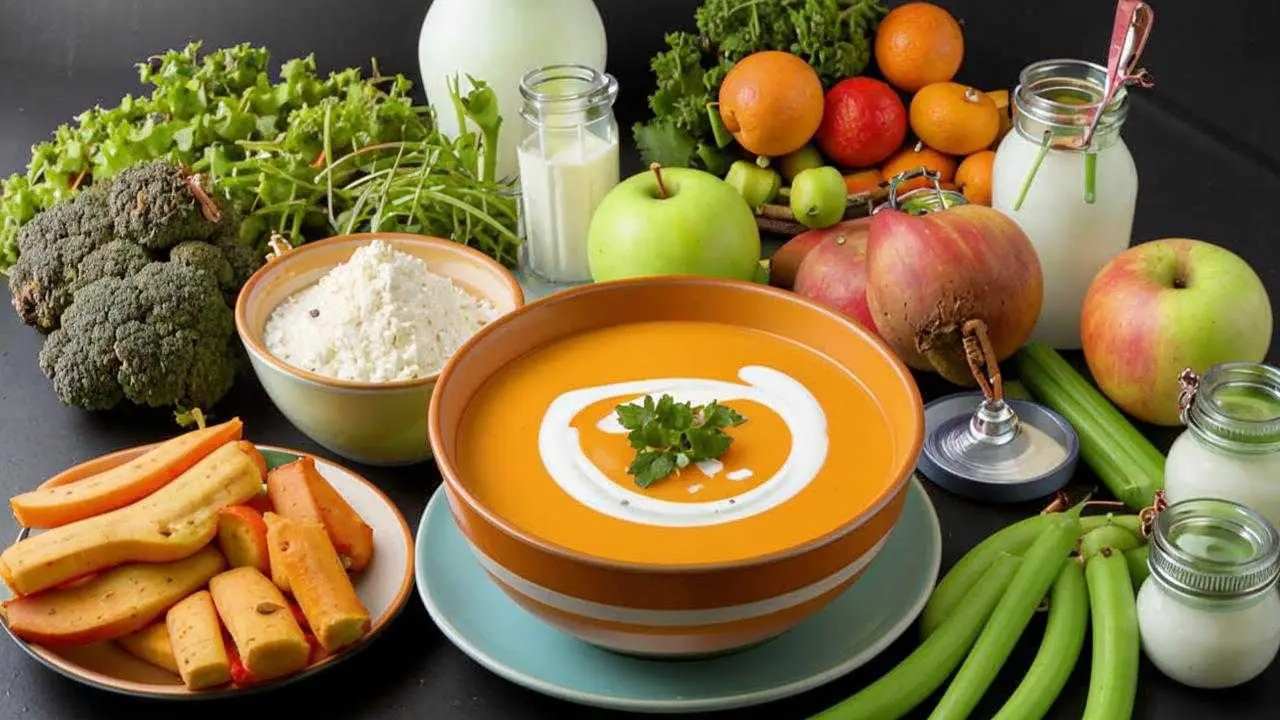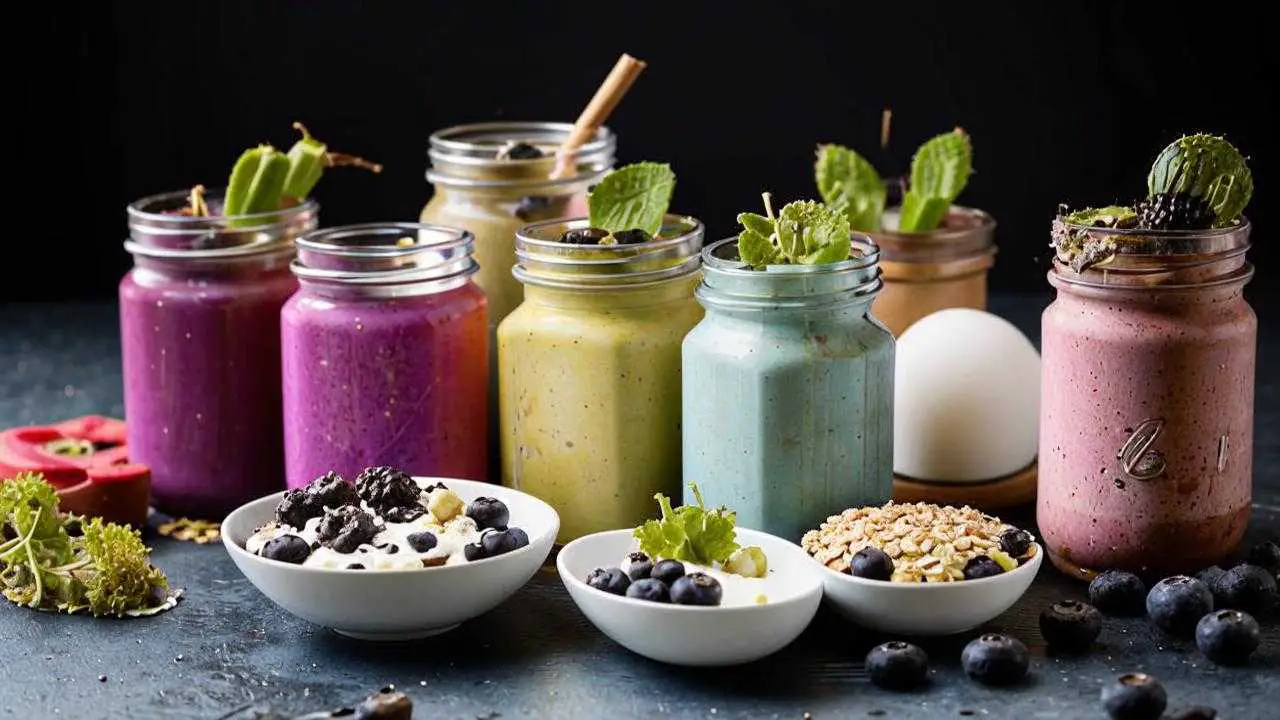Braces are the most effective way to correct your bite. Treatment with braces is not only the doctor’s work, but also the patient’s own efforts. It is necessary to keep an eye on the structure, hygienic procedures should be performed regularly and carefully, and also to follow certain dietary rules. But do not think that semolina is all you can eat with braces. Strict restrictions are necessary only in the first days. Then the list of allowed products is expanded, although some prohibitions remain.
The right diet will help to protect the structure from breakage and maintain oral health.
What to eat with braces on the teeth?
As we have already said, much depends on the timing. In the first days after installation and every time the doctor tightens the arch, you will have to eat only pureed food: cream soups, yogurt, cottage cheese, jellies and mousses. Such a diet reduces the load and facilitates adaptation.
The first meal is recommended no earlier than 2 hours after the system is installed, but some patients experience such discomfort that they do not eat for 24 hours. Others, however, eat even solid food without any problems. If you are among the lucky ones, still, it is better not to take risks: you may not be in pain, but the structure will break from overload. It’s a new doctor’s appointment, a repair. It’s worth being patient.
After the first, adaptation days, the list can include:
- soft cheese;
- meat not on the bone and not tough;
- Cutlets, casseroles, cooked sausage;
- mashed potatoes;
- eggs;
- puddings;
- vegetable and fruit purees;
- soft baked goods;
- bananas;
- smoothies, milkshakes.
The king of the braces menu is baby food: vegetable, fruit, meat. Baby food undergoes strict quality control, contains vitamins and minerals, and you do not need to chew it. In addition, cans are convenient to carry with you, to work, to visit, to take on trips.
In principle, any healthy food is suitable, if you run it through a blender beforehand. Some people get so used to pureed food that they continue to eat it after removing the structures.
Nutrition with braces should be varied and include all food groups.
The right diet will provide minerals and vitamins to support healthy teeth.
Breakfast
- Smoothie with the addition of any vegetables, greens;
- scrambled eggs;
- well-cooked porridge, preferably passed through a blender;
- fruits;
- nut urbeches (without chunks), vegetable spreads;
- soft bread, preferably without crust;
- yogurt;
- cottage cheese.
Lunch
If you have to eat lunch outside the house and need to take food with you, then suitable:
- soft bread sandwiches with vegetable pasta, soft sausage or cheese, tuna;
- baby food in jars;
- boiled chicken, boneless;
- puddings;
- jellies;
- bananas and other fruits, if it is possible to cut them up.
Dinner
- Mashed soup, any kind;
- mashed potatoes;
- poached vegetables;
- pasta;
- casseroles, meat, vegetable;
- beans;
- rice.
Soft muffins, cookies, sometimes, chocolate (without fillers) can be eaten with braces. Use them as a reward for following a diet with braces.
How to eat with braces
Orthodontic structures are worn for a long time. In order not to damage them you have to change not only your diet, but also your approach to eating.
1. Cut food into pieces
It is no longer possible to bite into an apple or a carrot, or even a cucumber. The piece may come off or the vector of movement may shift. It is not easy to give up the desire to take a bite, you will have to rebuild habits. Corn is peeled off the cob with a knife, vegetables and fruits are cut into slices. Even relatively soft foods are better cut – the risk of damage to the structure will be reduced.
2. Chewing only with the back teeth
The farther the teeth are from the smile area, the bigger and stronger they are. Chewing with the back teeth reduces pain after placement and correction because it reduces the strain on the front teeth. It is best to get food farther back in your mouth right away. It is uncomfortable at first, but then you quickly adjust.
3. Eat slowly
No matter how hungry you feel, you can not rush with food. When a person is in a hurry, he forgets the rules, especially in the first few days. In a hurry, you can bite off a large piece rather than cutting the food into slices. When chewing quickly, there is an increase in injury.
4. Drinking plenty of water
Water helps you swallow food that you may have chewed poorly. It washes away food debris from your teeth and parts of the structure.
Vegetables can be lightly poached, broken up with a blender. Fruits can be cut up, made into purees. But you can not refuse fruits and vegetables because of discomfort. They are an irreplaceable source of vitamins and minerals, play an important role in the work of the intestines. The diet should be varied, only the ways of using products change.
What to exclude
Orthodontic treatment is a long and expensive process. It is better to follow the recommendations, so as not to reduce the difficult work to zero. First of all, the dentist will necessarily point out the products that you can not eat when wearing braces.
The concept of hardness is different for everyone, but let’s start with the obvious: nuts, jerky, breadcrumbs, caramel, hard fruits and vegetables, popcorn.
- Cereals and seeds
Cereals themselves are healthy, but tend to get stuck in your braces. Same with seeds, especially small ones like chia and poppy seeds. You may not feel them, but in the meantime they provoke putrefactive processes, bacterial multiplication. All this adversely affects the health of teeth. Seeds should be excluded, and cereals should be ground.
- Sticky products
Gum leaves the diet first. It is followed by nougat, toffee, marshmallow – everything that tends to stick to the teeth.
- Sweets and sodas
Sugar, especially in beverages, provokes bacterial plaque. Since hygiene during braces treatment is difficult, the risk of tooth decay is greatly increased.
- Foods with natural pigments or artificial colors
Some parts on the braces can absorb pigment. The structures themselves contribute to some demineralization of enamel, dyes can penetrate the pores and change the color of the teeth. This is why dark berries and vegetables, pigmented alcohol, and coffee are on the list of what not to eat after braces.
Remember, restrictions in food are temporary, and the result of treatment will stay with you forever.
What else is forbidden
Those who like to chew their nails, pens and pencils will have to make an effort to give up these habits.
Exclude will have to exclude too cold and too hot. Warm food is the best friend of braces.
Features of care for braces – systems
Oral hygiene is always important, but with treatment with braces, its importance increases many times over. Clean the construction from food residues is important for the prevention of tooth decay and inflammation.
In addition to regular brushing after every meal, it is important to:
- Complete the brushing with brushes, capturing spaces that the brush may have missed
- Flossing. You should brush each group of teeth that have been pulled down. Form a “C” out of the floss to clean the tooth on all sides.
- Use an irrigator. The water penetrates where even a toothbrush is hard to reach. Plus, massaging the gums stimulates blood circulation, which means tissue nourishment.
- Wear traction, if prescribed. The temptation to refuse additional load is great. But the success of treatment depends on compliance with the recommendations. Pulls are removed only during meals and hygiene.
- Regularly remove plaque in the dental office. Foreign structures in the mouth contribute to the accelerated formation of plaque. Bacteria provoke tooth decay and periodontal disease. Plaque removal is desirable for everyone, but it is mandatory for orthodontic treatment.
In order for treatment to bring the expected result you need:
- Memorize the list of what you can not eat with braces on the teeth and strictly adhere to it
- Observe the principles of nutrition while wearing braces: cut food into pieces, avoid temperature extremes, chew slowly and with the back teeth.
- Carefully perform hygienic procedures
- Visit the doctor regularly
Following the rules will help to complete the process successfully, and your smile will please you and others.



